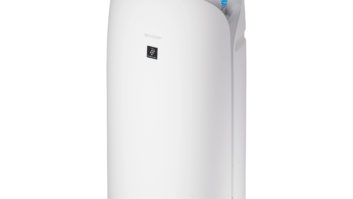In September, the Asthma and Allergy Foundation of America (AAFA) released its 2019 State Honor Roll of Asthma and Allergy Policies for Schools. Based on 23 core policies, the report ranks the states with the best public policies for people with asthma, food allergies, anaphylaxis, and related allergic diseases in U.S. elementary, middle, and high schools. “Some 23 core policy standards are related to medication and treatment awareness and school environment,” says Jenna Riemenschneider, Director of Advocacy and Special Projects at AAFA. “There are four specifically related to the school environment and indoor air quality. We look at each state’s policies to see if they meet these criteria.” States can make the honor roll when they hit 18 of 23 core policies.

Fifteen States Made the AAFA’s 2019 Honor Roll
- Connecticut
- Delaware
- District of Columbia
- Illinois
- Indiana
- Massachusetts
- Mississippi
- New Jersey
- New Mexico
- New York
- North Carolina
- Rhode Island
- Vermont
- Washington
- West Virginia
AAFA’s Core Policies for Protecting Students’ Asthma and Allergy Health Specific to School Environment
- State has mandated that all schools must have indoor air quality (IAQ) management policies
- State has adopted a policy requiring that districts and schools conduct periodic inspections of heating, ventilation and air conditioning (HVAC) system and other items essential in asthma/ allergy management.
- State has IAQ policies that include specific components important in asthma/allergy management – HVAC, HEPA (high-efficiency particulate air) filters, carpeting, and pesticide use.
- State recommends/requires that districts or schools use Integrated Pest Management (IPM) techniques OR ban the use of pesticides inside school.
- State requires schools to notify parents of upcoming pesticide applications.
- State limits school bus idling time and establishes proximity restrictions.
- All smoking is prohibited in school buildings and on school grounds.
- All smoking is not permitted on school buses and at school-related functions.
- Tobacco-use prevention is required in the health education curriculum.
A state can earn extra credit pertaining to the school environment by meeting the following criteria:
- State makes funding or resources available for technical IAQ assistance to schools.
- State recommends standards and programs to promote environmentally preferable materials for school construction, maintenance, and cleaning.
- State requires school facility design standards that include low emission construction materials, pollutant source controls, durable and easy to clean surfaces and floors, moisture/mold controls.
- State has implemented or actively promotes diesel school bus engine retrofitting program.
- State requires districts or schools to provide tobacco-use-cessation services to students.
What Can You Do to Get Your School on the Honor Roll?
“Awareness is the first step,” says Michele Ann Cassalia, Director of Marketing of the Asthma & Allergy Friendly Certification Program at AAFA. “Moms and dads can print out the Honor Roll and show it to teachers at the PTA meeting or talk to the school principal.”
However, don’t stop there. Riemenschneider is encouraging parents to contact their congressperson to get them to co-sponsor the H.R.2468 bill, which she has been actively involved in.
In May 2019, House Majority Leader Steny Hoyer (D-MD) and Representative Phil Roe (RTN) introduced the School-Based Allergies and Asthma Management Program Act (H.R. 2468). The H.R.2468 bill would encourage states to improve their policies so they can be given preference to receive funding from federal asthma-related grant programs. “If passed the bill will provide incentives for funding sources and states and school districts,” says Riemenschneider. “It also has a comprehensive management plan to address environmental triggers on school properties.”
You can learn more about H.R. 2468 here.
Short of passing government bills, “At the end of the school year, parents always scramble to figure out, what to get a teacher,” says Cassalia. “Wouldn’t it be fantastic if the parents pulled together and bought the teacher a certified air purifier for the classroom?” Even better, consider gifting teachers’ air purifiers at the beginning of the school year.













